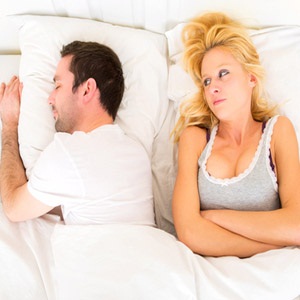
Testosterone and other reproductive hormones do play a role - but probably a small one - in women's feelings of sexual desire during menopause, according to a new study.
Read: Exercise after menopause keeps women's minds in shape
Factors like emotional wellbeing and quality of the intimate relationship may be more important, says lead author Dr. John F. Randolph, Jr., of the University of Michigan Health System in Ann Arbor.
Hormones don't play a big role
"The big thing that came out of this is it has long been assumed or theorised that hormones played a big role, but it's been hard to prove," Randolph told Reuters Health. "Hormones definitely do play a role but it's not a big one."
For the new study, researchers studied data from more than 3,000 middle-aged women participating for at least 10 years in an ongoing study that included annual questionnaires about sexuality and blood tests to measure hormone levels.
The women were between 42 and 52 years old at the beginning of the study. By the 10th year, 77 percent were post-menopausal and 7 percent were using hormone replacement therapy.
Yearly questionnaires addressed how often the women felt desire in the past six months to engage in any form of sexual activity either alone or with a partner, and how frequently they had done so.
Read: Depression and menopause
Those who reported having sexual activities with a partner were asked about their levels of arousal, ability to climax, frequency of vaginal or pelvic pain during intercourse and lubricant use.
Women with higher levels of testosterone tended to report more frequent masturbation, more sexual desire and arousal than those with lower levels, according to the results published in the Journal of Clinical Endocrinology and Metabolism.
Women who had higher levels of follicle stimulating hormone, which rises during menopause, tended to report masturbating, feeling arousal and experiencing orgasm less often than others.
Hormones not linked to painful intercourse
Hormones did not appear to be linked to pain with intercourse. Even for the other measures of sexual function, hormones only accounted for part of the picture, Randolph said.
Those who said they had fewer sad moods and higher levels of satisfaction in their relationships also reported better sexual function.
"Women's sexual function is pretty complicated and it would be naïve to assume only one factor is important," Randolph said.
Men have 10 times as much testosterone as women, so it's harder to measure the influence of the hormone for females, he said. And it's new to consider a metric like masturbation frequency, which hasn't been studied much for this age group of women but is an important indicator of sexual function, he said.
"Our work shows that there are a lot of other things that are equally or more likely to be important, the big ones are partner relationship and mood," Randolph said.
"This is an article confirming the potential role of testosterone in women's sexuality independently from a partner and it adds a piece to the story that sexual function is driven by androgen but sexual behaviour is related to the context, especially the partner," said Dr. Rossella Nappi of the Research Centre for Reproductive Medicine and Unit of Gynaecological Endocrinology and Menopause at the University of Pavia in Italy.
Nappi was not involved in the new research.
Some women retain sexdrive across menopause
"Some women retain the ability to masturbate and climax across menopause because of higher androgen levels but maybe their sexual function with a partner is impaired due to many other reasons," she told Reuters Health by email.
Testosterone seems to have a modest effect on sexual health for menopausal women, but it remains to be seen how it affects women at older ages, and whether or not testosterone therapy will at some point be a viable therapy, Randolph said.
"It's a really hot topic with men right now because more people are asking for it and doctors are prescribing it," he said. "From a treatment perspective, we really don't know what the long term effects of giving testosterone are, and we need more information."
Read: What is menopause?
The Endocrine Society has recommended against testosterone therapy for women based on the evidence at this point.
"There are other things that probably have a bigger bearing on what's going on," Randolph said. "We should look at the whole picture rather than focusing on one single thing, and probably that means that testosterone as a treatment is not going to be something the vast majority of women will need."
Read More:
Symptoms of menopause
Treating menopause
How to deal with hot flushes
Image: Couple in bed from Shutterstock.




 Publications
Publications
 Partners
Partners










